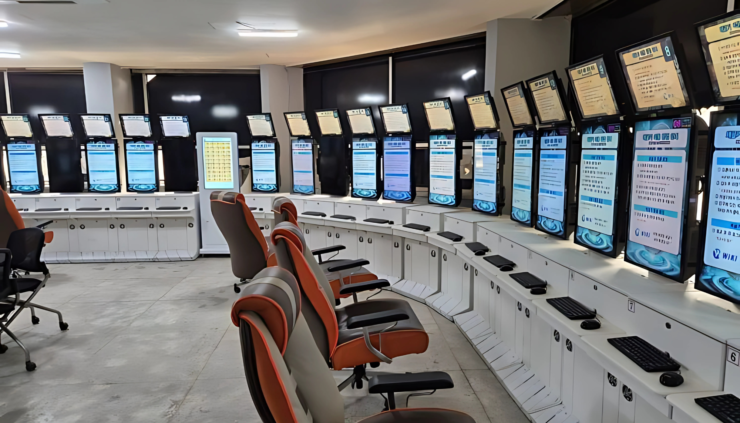What appeared to be a cryptocurrency mining operation in South Korea’s Gwangju district has been revealed as a front for an underground gambling ring. Local authorities raided the site earlier this week, uncovering 50 altered gaming machines and two cash kiosks secretly operating inside a commercial office space.
According to a statement from the Gwangsan Police Station, the establishment was run under the guise of a virtual currency exchange and mining facility, allowing the operators to mask illicit gambling activity. The suspect behind the setup, referred to only as “Mr. A,” is now under investigation for violating the Game Industry Promotion Act.
Police say more than 140 million Korean won—approximately $95,000 USD—moved through the operation before it was shut down.

Police Expand Probe as Illegal Gaming Crackdown Intensifies
In the wake of the Gwangju raid, South Korean authorities have seized all gaming equipment linked to the operation and are broadening their investigation to uncover additional suspects. Officials say the man behind the scheme, known only as “Mr. A,” had retrofitted a free mobile game into a cash-based gambling system—charging users ₩50,000 ($38) per hour and paying out winnings based on player scores.
Law enforcement described the setup as a sophisticated attempt to evade scrutiny under the pretense of cryptocurrency mining.
“We will actively block illegal gaming centers from reopening or spreading even after being cracked down on,” said Chief Jeong Gyeong-ho following the raid.
Another senior officer added that the government plans to maintain pressure on these underground operations, describing them as a direct threat to South Korea’s economic stability.
Digital Facades Fuel Rise in Gambling Crimes
South Korea is facing a surge in gambling operations cloaked in digital legitimacy—from phony crypto ventures to fake investment platforms—designed to slip through regulatory cracks. These schemes often mimic real businesses, leveraging the blurred lines between fintech, gaming, and blockchain technology to conceal illicit activity.
Authorities say these hybrid fronts are becoming harder to detect and increasingly international in scope.
In one major bust last November, police dismantled a sprawling online betting syndicate that moved over ₩108.4 billion ($7.77 million) in illegal wagers. The operation relied on encrypted messaging apps and invite-only recruitment to avoid detection.
Just last week, a separate investigation led to the arrest of 18 suspects in South Gyeongsang Province. The group, allegedly running illegal online casinos out of the Philippines, was responsible for laundering an estimated ₩250 billion ($169.5 million) through Korean users. Gamblers were lured in through mass texts and promotions at internet cafés—underscoring the high-tech tactics of modern illicit networks.
The growing frequency and sophistication of these operations has prompted Korean law enforcement to double down on enforcement, with renewed efforts to close regulatory loopholes that enable cross-border laundering and digital disguise.
Quick Facts:
- South Korean police uncovered an illegal gambling den in Gwangju disguised as a crypto mining operation.
- The suspect, “Mr. A,” installed 50 modified gaming machines and two kiosks under the guise of a virtual currency exchange.
- Over ₩140 million (~$95,000) passed through the operation before it was shut down.
- In November 2024, authorities arrested 12 operators and 191 gamblers linked to a $7.77 million online betting network.





